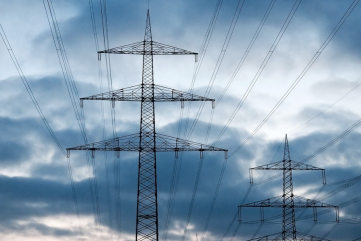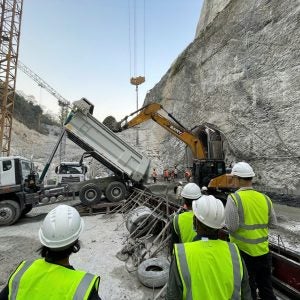
The UK Government has announced measures to strengthen the nation’s energy infrastructure and improve resilience in response to a report by the Environmental Audit Committee (EAC) on long-term energy storage challenges.
The EAC’s report, published in May, highlighted that insufficient energy storage was forcing the UK to rely on gas imports to balance energy demands. The report identified market, policy, and regulatory barriers as major obstacles to the development of long-term energy storage.
In its response, released at the end of December, the Government detailed plans to remove these barriers and expand large-scale energy storage projects to ensure reliability during periods of low renewable energy generation. The review of energy storage systems is being conducted in collaboration with the National Energy System Operator (NESO) to make the system future-ready.
Addressing delays in connecting renewable energy projects to the grid, the Government pledged to align grid connections with strategic plans to expedite connections for ready-to-generate projects. To increase transparency, the status of the connection queue will now be published regularly.
The EAC also raised concerns about fragile energy infrastructure supply chains, which are affected by global competition, posing risks to the UK’s electrification goals. In response, the Government committed to enhancing market certainty and developing a roadmap for an electrification supply chain in collaboration with businesses.
EAC Chair responds
Environmental Audit Committee Chair Toby Perkins MP welcomed the Government’s response, stating: “We are pleased to see the Government’s positive response to our predecessor Committee’s report, and look forward to seeing the concrete plans which will secure our energy security.
“Addressing the grid constraints which could block the path to net zero is crucial, if the Government is to achieve its ambitions and clean up our energy supply. They explain that significant market barriers to long-term energy storage are to be identified, long-term energy storage will be rolled out and skills shortages in the sector are to be addressed: it is clear that the EAC’s advice has been taken seriously by the new Government.
“A root and branch approach is needed to transform the grid for clean energy and net zero: while there is significant work to be done, the policy progress by Government in response to Committee recommendations is promising. We look forward to discussing these issues with Ministers in more detail in the New Year.”
The UK Government has repeatedly been urged to to accelerate investment in long-duration electricity storage (LDES), including pumped storage hydropower (PSH). Industry has emphasised the critical role hydropower – in particular pumped storage hydropower – can play in enhancing the UK’s energy security and ensuring a reliable and affordable decarbonized electricity grid.






